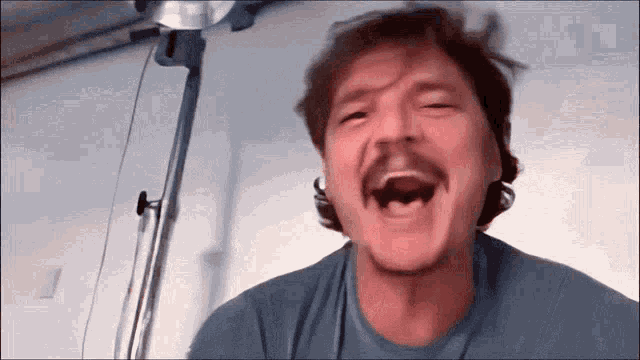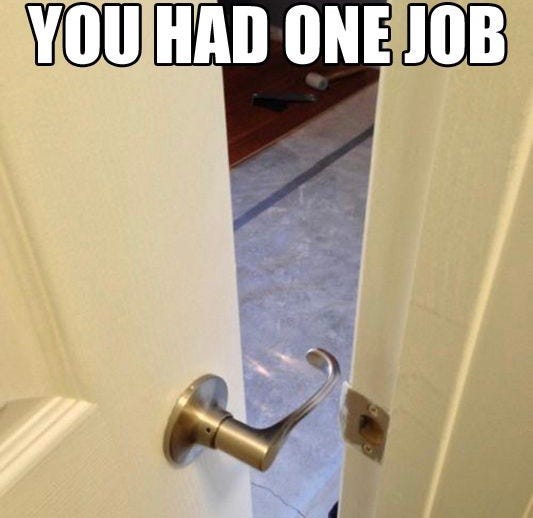Read time: 4 min
This summer, I walked into the office space I share with other climate startups.
The room was empty except for one young founder sitting alone in a dark corner, staring into space.
“Are you OK?” I asked.
“Yeah,” he replied. “Just thinking.”
“About what?”
“Whether or not to shut down my startup,” he said.
Damn.
“It’s just that startups are really hard,” he continued. “Way harder than I realized. I feel like I never know what to do, and I’m always making the wrong choices.”
I nodded.
“That’s pretty much how all startups work,” I said.
“I know, but why do they have to be so freaking hard?”
He stood up to leave before I could even answer. “Don’t mind me,” he said. “Just a little crisis of confidence.”
He walked out, and I was left with his question rattling in my brain:
Why are startups so freaking hard?
Our Biological Need for Instructions
The operational side of startups is tough — building products, fundraising, acquiring customers.
But none of those things are the reason why startups are hard. They’re just byproducts of something much deeper.
The real reason?
It’s biological.
Humans are wired to follow instructions. That’s why we’ve got 22,000 recipes on the New York Times website alone.
And it’s not just recipes.
Look at YouTube. It’s loaded with “how-to” videos for everything you can imagine — tying a tie, fixing a sink, even changing your jawline by adjusting how you position your tongue in your mouth (that’s what “how to mew” is, by the way).
The reason for all this instructional content is simple:
It’s how we survive.
Over centuries, humans learned that passing down specific instructions about how to do things made us more successful.
It’s the reason we don’t have to reinvent calculus — it’s taught to us because someone else figured it out.
But here’s the thing:
Entrepreneurship doesn’t have instructions.
Why Startups Fight Our Biological Instincts
Following instructions is our survival instinct, but entrepreneurs can’t rely on that.
By definition, you’re trying to build something new. Something without a guidebook.
That’s what makes startups so damn hard.
When you can’t find instructions, your biology freaks out.
It’s a constant fight against our ingrained need for certainty and guidance. And that’s exactly why the founder sitting in that dark corner was so beat down.
He was battling his own biology.
Operating Without a Roadmap
To survive in the entrepreneurial world, you’ve got to stop searching for instructions.
There’s no step-by-step guide for what you’re trying to build.
There’s no “how-to” for disrupting an industry or inventing something brand new. So, the only way forward is through relentless experimentation.
Trial and error.
Fail and learn.
Make mistakes, then make them again. The failures are your real instructions.
Embrace the Chaos
Startups are hard because they demand you do the exact opposite of what we’re biologically programmed to do.
Our instincts drive us toward safety and predictability, but entrepreneurship forces us into the unknown.
It’s messy. It’s chaotic. It’s uncomfortable as hell.
But that’s the point.
The only path to startup success is embracing the chaos, accepting that nobody has a map, and realizing that forging your own path is the real game.
Remember: The greatest skill you can develop as an entrepreneur isn’t knowing what to do — it’s figuring it out when no one else can.
Welcome to the forever roller coaster! 🎢
Whenever you're ready, there are 2 ways I can help you:
👉 Curious about lab-generated nanomaterials? 👩🏻🔬 That’s our next deal. Massive potential, super differentiated, ginormous market ready to explode.
Want to get in on this? Just reply to this message and I’ll share more details.
🌟 Promote your business to 5,000+ Climate Founders & Investors: Enroll in our new multi-channel partnership program to grow your business.









Thanks for this. It made a lot of sense 👍
I am so deep in this right now... the memes kinda said it all, but thanks for the reminder to stay the course, ride the waves, and keep an eye on the goal. I often tell myself "it's not personal" :)